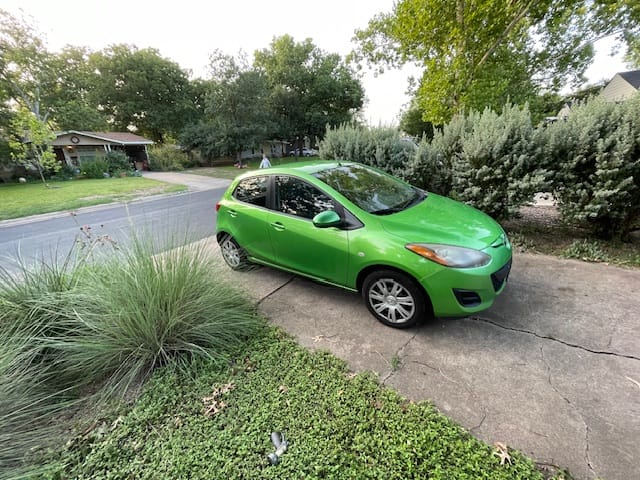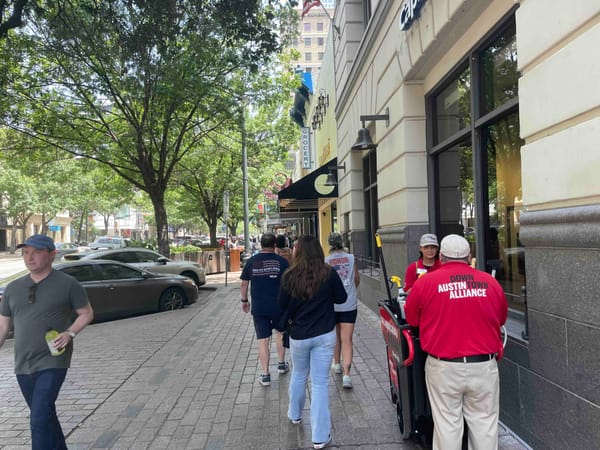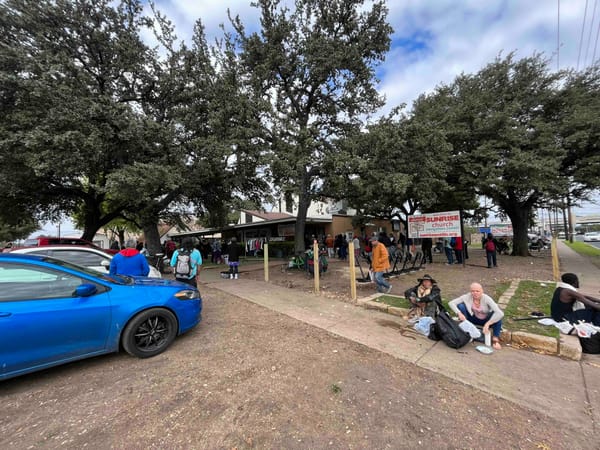Our unaffordable transportation
All cars are expensive.

Today was very busy, personally and professionally. I finally got a chance to sit down with City Manager T.C. Broadnax –– I'll have an article on that interview up in the coming days.
But mostly I've been busy trying to figure out what is wrong with my 11-year-old Mazda 2. Yes, contrary to popular belief I do drive, although I am proud to say that we are a one car, two e-bike household. I like this car because it's easy to parallel park, it's easy to find (especially since our clicker thing doesn't work anymore) and it's a stick shift. I've never understood why in a country as car-obsessed as the U.S. the stick shift has practically disappeared. If you're going to spend so much time in your car –– and attach your identity to it –– shouldn't you know how to really drive it? And yet, they remain ubiquitous in Europe. I don't get it.
Anyway, the Mazda has been making a troubling sound. My friend who works at a dealership took it for a spin and determined the culprit was a worn out clutch. The first shop I called gave me a $2,800 estimate, another said $1,900 and third place I called told me that I should check a few other things out before I rush to replace it –– such as the clutch fluid reservoir. "I'm just trying to save you money," said a no-nonsense mechanic at Don's Automotive on S. 1st. It turns out that reservoir is indeed empty, but the sound has persisted even after I filled it. Hmm.
The good news is that, whatever the problem is, we can afford to deal with it –– assuming that you maintain your APN subscription and tell everyone you know to subscribe. It might hurt, but it won't crush us.
The same is obviously not true for many others. Worse, many of those who couldn't swing a $2-3k repair are far more dependent on their car –– or cars! –– than us.
It goes to show how utterly ridiculous it is that defenders of our car-centric transportation system pose as advocates for the everyman, denouncing fancy schmancy trains or bike paths as costly distractions from the real work of converting neighborhoods and natural habitats into highways.
The fact is that there is no such thing as a cheap car. Not only is the cheapest car you can find on Craigslist not really that cheap, but the reason it's cheap is that it will require a major investment of time or money –– in most cases both –– to get it running.
I recall talking to a prominent local anti-transit zealot who told me of some experiment or study in which low-income people were given access to cars and saw their job opportunities skyrocket. This anecdote was supposed to be evidence of the wonders of the automobile, but all it did was highlight the problem with car-centric planning: it requires you to own a piece of machinery that many people can't afford!
In cities with excellent public transit, helping the poor get around is much easier and much cheaper. It costs much less to let someone ride the train for free than to buy them a car.
Alas, Austin does not have excellent public transit system. But it can be decent if you live in the right spot. This is why it's so important for the city to prioritize affordable housing in areas that are walkable and close to high-frequency bus routes –– particularly those that (might) become light rail routes in the future.
And of course we gotta keep taking baby steps towards a better transit system. Project Connect is just the first.
If you enjoyed this article, please consider subscribing to the newsletter for daily insights on city politics.





